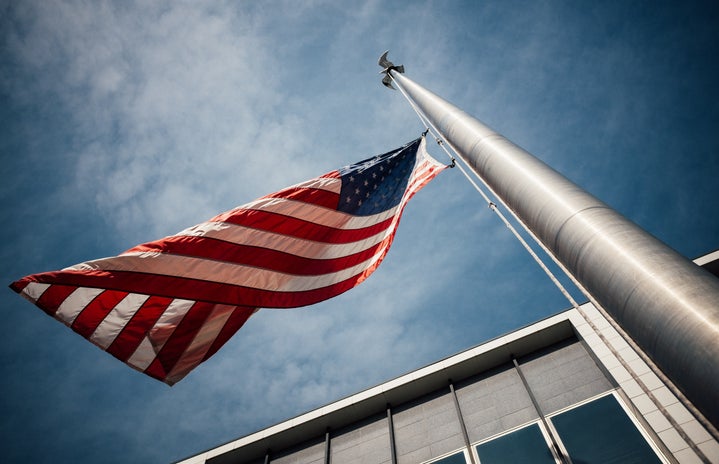With everything seemingly getting back to “normal” lately, I’ve found myself feeling a bit bad about myself now that I see all the things people are doing. I’m not talking about your typical case of FOMO, but rather the feeling I get when I see my peers and acquaintances have a ton of things they’re a part of while I mostly just work and go to school. Now that we’ve resumed in person school and work, people are out there doing internships, getting jobs in their intended career field and overall doing well for themselves. And that’s great, I’m not bitter towards them. But, I do feel a little less than most because I see people from my predominately white high school interning for politicians, while also interning somewhere on campus or something. Seeing things like this tends to make me feel like I haven’t accomplished much or anything, and that I’m not doing things I should be doing.
But then I take a deeper look and realize that I am not like them. My parents are immigrants who came to the U.S. with nothing. My father left his home, family and friends behind, and never got to see them again (his parents have passed away since the last time he saw them 23 years ago). My mom had to sacrifice her education, childhood, happiness and much more to come with her family to the U.S. Once she got here, she had to start working to support her siblings and family and never got to see a single dollar of that money. My parents came here with absolutely nothing and sacrificed everything not only for their own prosperity, but for that of future generations.
The U.S. has an astounding amount of inequality. Since the 1970’s income inequality has been increasing; with 50% of the overall income in the country going to the top 10% (Piketty & Saez 2003 and updated in 2018). Wealth inequality is incredibly high here too. In 2013, the average amount of wealth a white family held was $141,000 (Gibson-Davis &Hill 2021). Black and Hispanic/Latinx families in comparison, held $11,00 and $13,700, respectively (Gibson-Davis & Hill 2021).
These numbers matter for several reasons. Income inequality leaves families without a secure access to basic necessities like food, water, shelter and other essentials. This particularly leaves BIPOC individuals at a disadvantage as the working class is disproportionately made up of BIPOC. The lack and drastically low amount of wealth also affects the opportunity and ability to climb up the social ladder. Wealth is generally measured as assets like investments, homes and stocks. But wealth also includes forms of capital like human, social, cultural and others. Human capital refers to education and skillsets. Social capital encompasses things like memberships to social organizations and who you know that can produce tangible rewards like jobs, getting into an elite school, etc. Cultural capital includes knowledge and manners that help people navigate the social world.
As a result of these numbers, white families and individuals hold a drastic advantage over BIPOC individuals. Not only do they hold large amounts of wealth, but also have an advantage when it comes to things like racialized policies and discrimination.
My parents, like many others’, came to the U.S. and lost most forms of capital they had and also had to start from scratch. Being that I come from a predominately white town, it was abundantly clear that my family had a greater disadvantage than my peers. Not only did my parents suffer from the lack of wealth and decent income because of institutionalized racism, but they also had to deal with the fact that this country has criminalized their identities as immigrants. All of these factors led us to have to work much harder to acquire or accomplish anything.
Growing up, my parents worked minimum wage jobs tirelessly in order to give my siblings and I what we needed to succeed. They provided us with food, shelter, clothing and other items. But, the one thing that was impossible to acquire was wealth. Given that minimum wage is pretty much impossible to live on, we had no opportunity to generate wealth as my parents struggled to make ends meet. The lack of wealth we had affected us. We had no monetary safety net, did not own a home as we rented, we had no social connections outside of our family and barely any cultural capital as my parents were still adjusting to living in a foreign country.
But this wouldn’t have happened if it weren’t for U.S. imperialism which caused a lot of turmoil in my parents’ home country of Mexico. Mexico was being depleted of their main source of income by the U.S. in the mid 1900’s, which led to corruption, economic instability and overall unlivable conditions. So, my parents like many others, made the hard decision of leaving their home in order to have a chance at surviving.
I often forget this. I forget that my white peer’s hold a large advantage over me. They tend to have college educated parents and grandparents who held careers that could open doors for them and overall, a greater advantage as they don’t face discrimination or the consequences of having their parents’ identity criminalized by this country. Everything my family has acquired, whether it be income, various forms of capital and wealth, they earned themselves. White families have the advantage of having generations of families here that have allowed them to reap the benefits of passed down wealth. And wealth begets wealth; having wealth statistically makes it easier to gain more wealth.
This is not meant to diminish any white individuals’ accomplishments but rather to highlight something I and most BIPOC and first-generation students forget. That we had to work twice as hard as others to get to where we are today. As a daughter of immigrants, I have come a long way in my life and while I don’t have the luxury my white peers might have to do various unpaid internships because I have to sustain myself, my accomplishments are still as honorable. I struggled learning English in elementary school and had to go to ELL classes to learn how to better speak, read and write in English. Despite that and that I come from a low-income household with no wealth or abundant forms of capital, I’m still here. I’m here thanks to the sacrifices that my parents made. And I often forget that while it may be no big deal to some being at college, this was more than I and my parents could ever want for me. Thanks to them, I have the opportunity to begin to accumulate generational wealth, and this is not something I take lightly.


